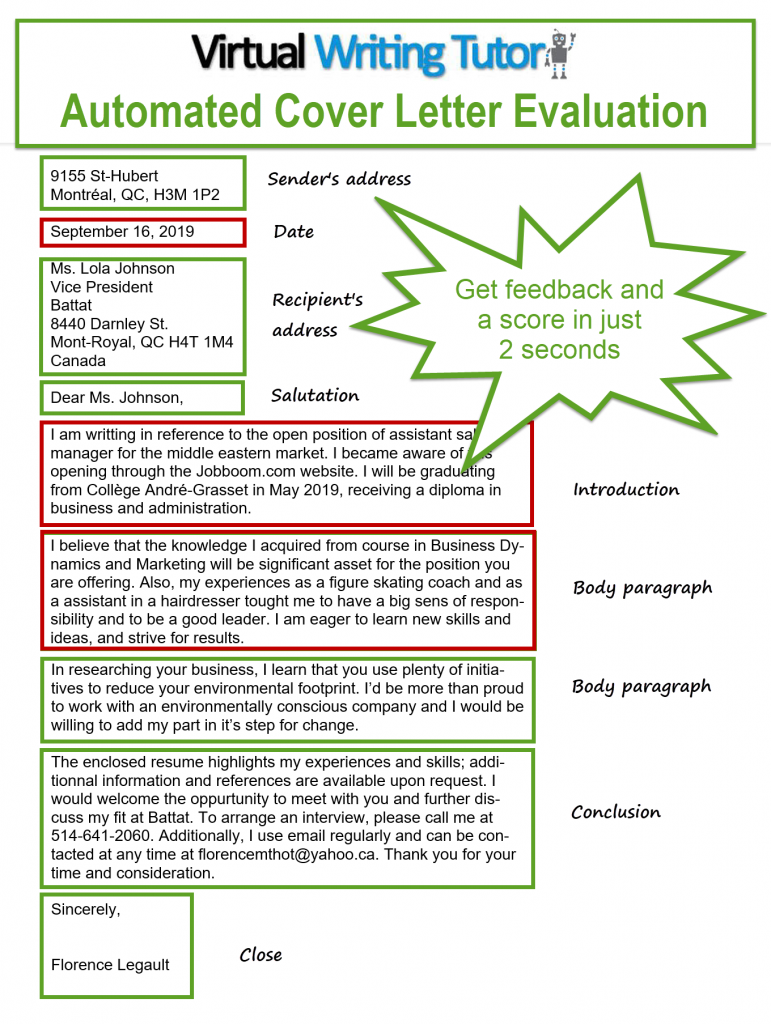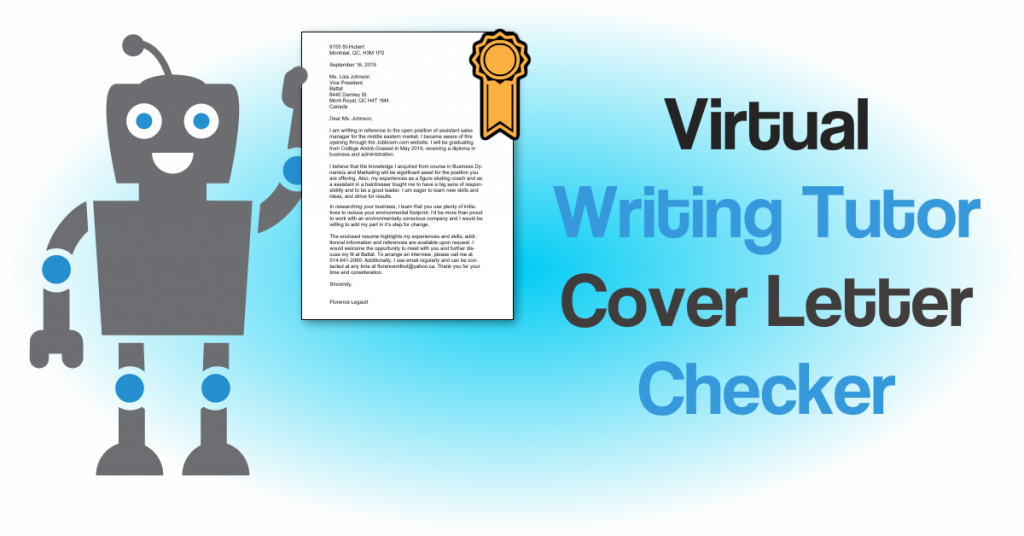Job hunting is hard. There are so many candidates competing for the best jobs that recruiters look for ways in which you disqualify yourself. Either your CV is too thin, your interview was awkward, or your cover letter was the wrong format and full of errors. Was it the cover letter that blew it for you? Could be.
What’s a cover letter, anyway? It’s the letter that acts as a cover to your CV. It introduces your CV and explains what you want. It is hard to know what is important in a CV, so cover letters help prospective employers know what parts of your CV are most relevant to the job you are applying for. Cover letters are like a user’s guide to your CV.
What should my cover letter say?
A cover letter highlights what your CV can’t. If you are a college student graduating from college with no work experience, a cover letter is a way for you to explain to prospective employers how your work experience doesn’t tell the whole story, how your degree, your volunteer experience, your hobbies, your blogging project should be considered as well.
A cover letter is also an important opportunity to demonstrate your bilingualism and written communication skills. Some job applicants like to write in their cover letters, “I have excellent communications skills.” Really? Prove it with a well-written cover letter.
Could you correct my cover letter?
Yes. Let me help you write a better cover letter. I won’t give you a lengthy list of dos and don’t. Just submit the letter you have and I will tell you how to improve it.
If you have a cover letter already, click the button below to get started.
The Virtual Writing Tutor has an automated cover letter checker to guide you in your revisions. It can identify the various parts of your letter and tell you what is missing, what errors it detects, and how to improve it. It also calculates a score for you. Use the score to guide your revisions. It lets you know how well you are doing so far.

What should I write in my cover letter?
If you are new to cover letters, here are some instructions. Follow them carefully. Cover letters are quite standard in format and content.
It is important that you follow the format described. Using the standard format will help hiring managers grasp the content of your letter quickly. Eccentric letters do not indicate brilliance. They indicate that you are difficult and can’t follow instructions. Make your letter easy to read by putting your specific information in the right place.
Instructions for the Cover Letter
Write a 450-550 word cover letter in response to an authentic job advertisement. In addition to the standard elements of a letter (addresses, date, salutation, and close), write 4 paragraphs about your qualifications, experience, your CV/resume, the company you are applying to, the job you are applying for, and end with a request for an interview.
Test the system with this sample letter if you like.
Sender’s address, date, recipient’s address, and salutation
At the top of your letter, include the following:
- Sender’s address: Write your address on two lines. Do not include your name because it will appear at the bottom of the letter. Do not write “Cover Letter” or any other words above your address.
- Date:Give the date in English in either of these formats: 16-Sept-2020 or 16 September 2020.
- Recipient’s address: On a maximum of 6 lines, write the address of the person you are writing to. On the top line, put the recipient’s name if you know it. Under that, put the recipient’s job title. On the third line, put the name of the company. On the next two or three lines, write the company’s address.
- Salutation: If you use the recipient’s name, write “Dear” + the recipient’s name”. Use “Ms.” rather than “Mrs.” for a woman. If you don’t know the recipient’s name, you can write “To” + the recipient’s title”. If necessary, you can write “To whom it may concern,” but it is not recommended. In all cases, end this line with a comma.
First body paragraph
Include the following:
- Purpose: Begin the paragraph by saying why you are writing the letter. Use the standard phrase “I am writing…”.
- Source: Say where you found out about the job. Use one of these phrases: I found the job offer on, I became aware of the opening through, I heard about this internship through, I learned of the position from. Other phrases may be acceptable.
- Best qualification: Tell the recipient about your most important qualification using phrases such as the following: I will be earning a degree, I will be graduating, I will be receiving a degree in. Other phrases may be acceptable.
Middle body paragraphs
- Summary of experience: Write about what you have achieved in the recent past. Use phrases such as these: have worked, has prepared me, has provided me, have grown, have acquired, have gained, have learned, has helped me, has allowed me, have developed my, have improved my…
- Refer to CV: Draw attention to any information in your CV that you believe to be particularly relevant but liable to be overlooked. Use phrases such as these: You will see in my CV that I have, My work history does not capture the extent of my…
- Evidence of research: Demonstrate that you have done some research. Show that you have insights into the company’s unadvertised needs. Highlight any skills and characteristics that might be relevant to the specific company you are applying to. Avoid trying to flatter the recipient with praise.
Final body paragraph
- Gratitude: Thank your reader for taking the time to consider your candidature.
- Reference to documents: Let the reader know what documents they will find with your letter.
- Call to action: Request an interview or phone conversation. Say what you want the recipient to do.
- Contact information: Provide a phone number, your availability, and how you look forward to the next step.
Close
- Close your letter: Use the standard closing “Sincerely” on its own line ending with a comma.
- Your name: Write your full name using the standard capitalization convention.

Teach cover letter writing in class
Everything you need to get started teaching and evaluating cover letter writing is right here. Download the MS Word docx file above. Have students draft a letter and submit it to the cover letter checker for a formative evaluation. Once they are satisfied with the score generated by the system, ask them to turn it in to you for summative evaluation.
Remember that the VWT is fast but it doesn’t understand what the letter says. It merely checks for structural features, expected vocabulary, and common grammar errors. Students need a human reader to check if they have made a compelling case to hire them.
